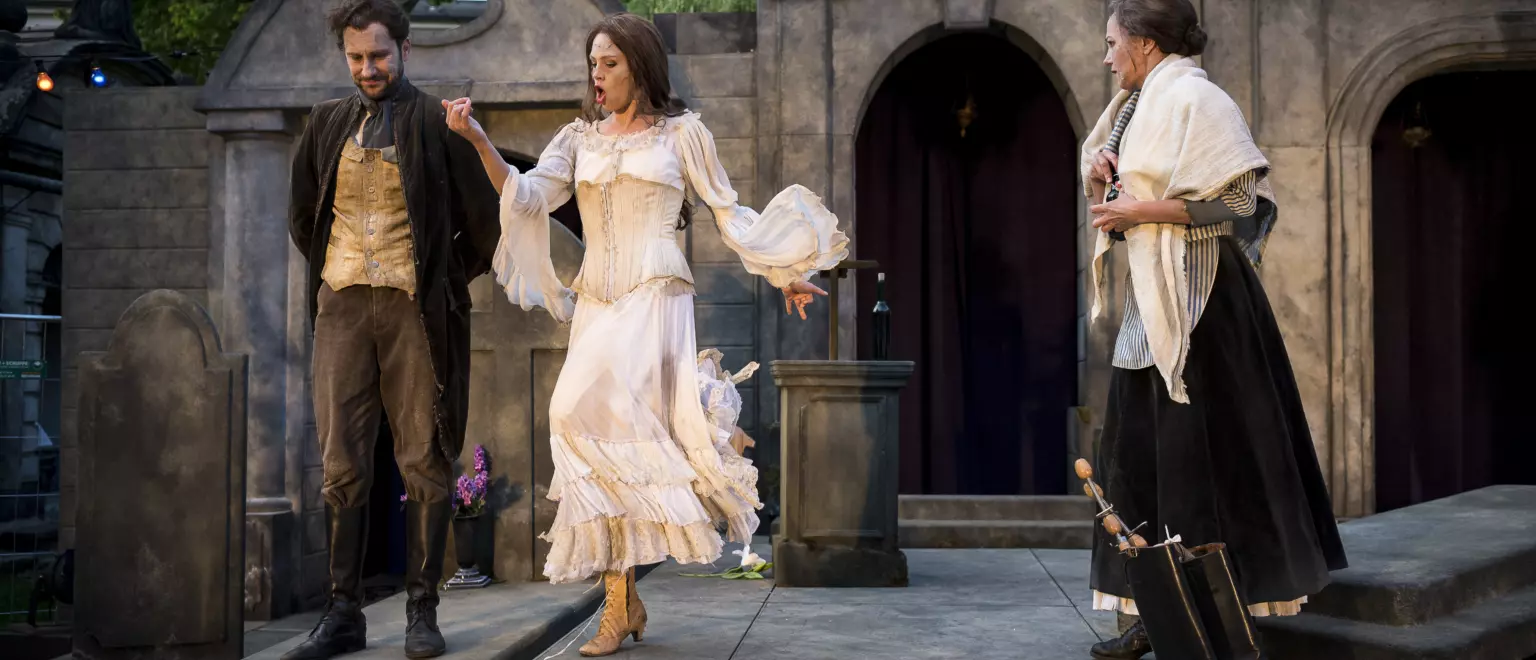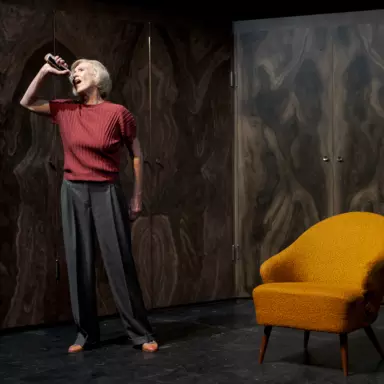Play by August Strindberg
Midsummer night on a Swedish country estate. The young noblewoman Julie enjoys the festivities. In the heated atmosphere, she breaks out of her life of strict rules and norms and celebrates exuberantly with the servants. Yes, she dances, drinks, flirts and meets the educated as well as urbane house servant Jean. And although Julie knows that he is engaged to the cook Kristin, she teases and provokes him, very much aware of her erotic effect.
A game of love and power begins, a struggle in which there will be no winner in the end. In the light of the awakening day, it becomes clear that erotic attraction cannot overcome social barriers.
Julie, ready to give up her noble title and her home for a relationship with Jean, is rejected by him after they have slept together. Now the roles are reversed. Jean has seen Julie only as a mistress and financier in the realization of his professional plans. Humiliated and deprived of her virginity by a servant, she is confronted with Jean's claim that there is only one way out for her.
Love and power, self-assertion and submission, social status, role expectations and their transgression are the central themes in August Strindberg's tragedy about loneliness, egoism, greed and betrayal. In one of Zittau's most beautiful courtyards, the courtyard of the former Franciscan monastery, director Beatrix Schwarzbach stages the tragedy, which was banned by Swedish censors immediately after it was written and therefore premiered in Copenhagen in 1889, as an intense dance through the night with between summery lightness and bitter darkness.
Theatre and Literature
Aktualisiert am 08.08.22, 23:29 o 'clock


